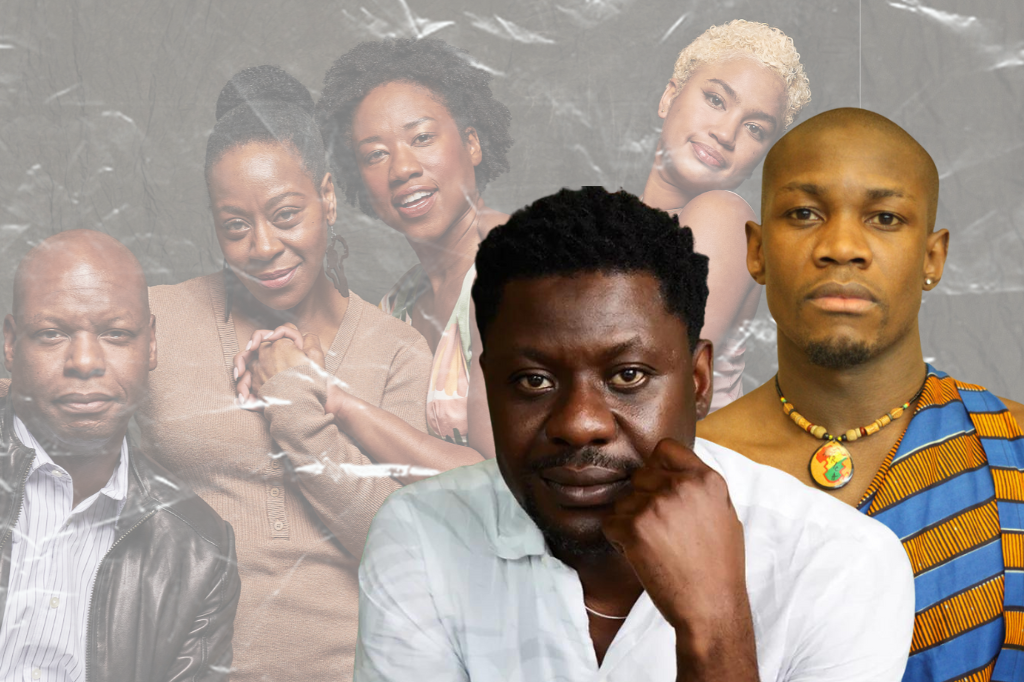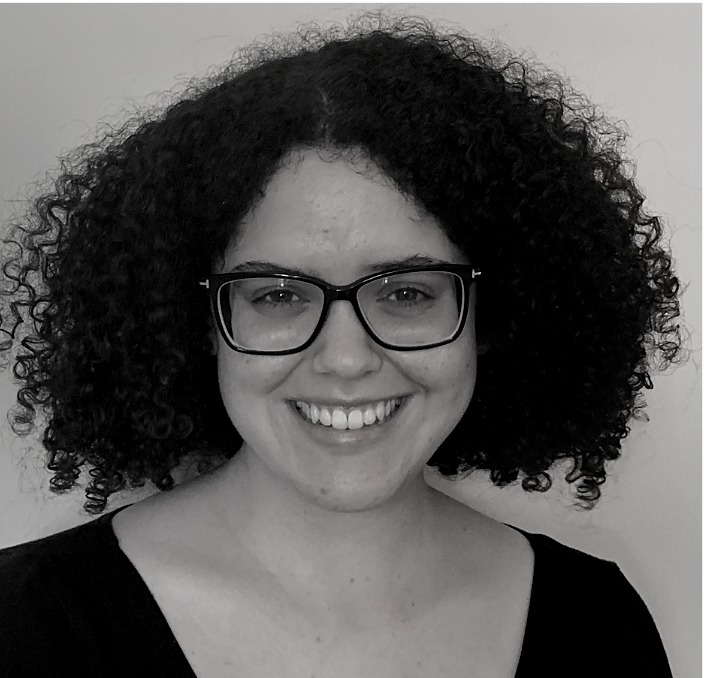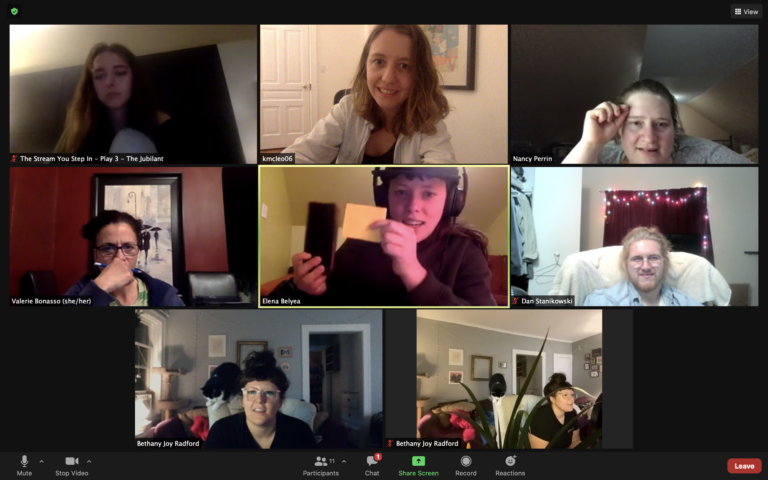“There’s Joy and There’s Pain at the Same Time”: In Conversation with Fairview’s Tawiah M’Carthy and Pulga Muchochoma
“I think it’s having quite a complex conversation around race…around our consumption of Black art and how we view other cultures outside of the dominant culture, especially in North America. And I feel like that conversation hasn’t been had in such a well-crafted way as it has been in this text.”
This is how Fairview’s director Tawiah M’Carthy described the appeal of Jackie Sibblies Drury’s startling and structurally daring play, which gets its Canadian premiere in a joint Canadian Stage and Obsidian Theatre production this month.
On the surface, the Pulitzer-prize-winning play is a conventional family drama which follows the Fraiser family’s normative conflicts as they prepare a birthday dinner in anticipation of the arrival of their matriarch. But before long things take a metatheatrical turn that’s difficult to describe without spoiling the piece’s unbalancing, compelling effect.
Fairview’s unique form and structure drew M’Carthy, who stepped in to direct after the show’s original Fall 2020 run was postponed due to the pandemic.
“When I create theatre all I want to create is an experience,” he explained. “So the excitement for this project is that the playwright has already done that for me. The playwright has actually written down an experience.”
Sibblies Drury achieves this effect by using each of the play’s successive acts to challenge the audience’s perceptions of the previous one, turning their examination back on themselves as viewers and making the gaze — the white gaze in particular — a fundamental part of the theatrical experience.
Realizing this experience is a challenge that assistant director and choreographer, Pulga Muchochoma, has relished. “I appreciate the nerves of trying to figure it out,” he said. “I enjoy trying to dig into the place of fear and pleasure at the same time, and I think this play automatically creates that. And so it’s a place that I wanted to be in.”
An experienced dancer, this is Muchochoma’s first time directing, and he was pleased to discover that his dance background was particularly useful to his interpretation of the piece.
“Dancing is my first language before theatre,” he revealed. “So after reading the play, I was actually taking a lot of notes. I’m like, ‘Oh, actually, there’s a lot of dancing going on’.”
The Fraisers’ family dynamics formed the basis for Muchochoma’s choreographic design.
“My understanding of what family is and how it means when you are around family is pretty much the biggest inspiration. And I also wanted to allow the actors to bring their own understanding of family,” he noted, grounding the play’s movement sequences in creative collaboration.
This attention to movement was also important to M’Carthy.
“When I think of directing I’m always interested in what is not said in the text,” he said. “Even when you’re talking to people attentively, you also read their body language and how they express themselves. And so for me, as a director, I’m always particularly interested in what the body is doing to support what the text is saying, or to go against what the text is saying, because there’s a story that lies within that as well.”
“Being someone who comes from another country, being someone for whom English is my second language, I’m constantly translating text before I speak,” he continued. “I feel like my inclination to [communicate] the story through the body comes from that. It comes from my relationship to text, and how I navigate my everyday life.”
Being someone who comes from another country, being someone for whom English is my second language, I’m constantly translating text before I speak.
Through the play’s choreographic sequences, the performers’ bodies serve as key tools to navigate the often difficult and fraught subject matter: contemporary anti-Blackness.
Responding to how the directing duo have navigated this challenging material with the show’s performers, Muchochoma recalled his favourite African proverb: “If you want to go fast, go alone, if you want to go far, go together.”
“We created a circle,” he elaborated, “and we do check-ins regularly to make sure that that circle is ours, we own it, and you’re safe to express how you feel and what you need.” These collaborative check-ins pave the way for the work, he noted: “we created that circle [so] we can always go farther together as a group.”
For M’Carthy, navigating difficult material is, “always an ongoing conversation.”
“I encourage everyone to bring themselves into the room,” he said, “knowing that everyone comes with their own level of discomfort, level of trust when it comes to this conversation.”
To provide for these varying levels of experience, in collaboration with the producers an active listener was brought in, who was on hand throughout the rehearsal period. As M’Carthy put it, they were “someone to talk to, so that the room stays focused on the work.”
M’Carthy explained the value of this new tool for Black artists in particular: “Most Black artists…find ourselves in projects like this, and we have to carry whatever is being opened up in the room, we have to deal with it on our own.” An active listener “helps to be able to teach, or learn from each other the ways to let go of it so that you can go and live your life.”
While Fairview has received widespread critical acclaim, netting Sibblies Drury a 2019 Pulitzer, a critique that’s emerged of the show, particularly from Black critics (including Amissa Miller and Paul J. Edwards), is that Fairview ultimately centres the white gaze and primarily addresses white audiences.
“I can see how that can be true,” M’Carthy acknowledged, speaking to his experience of the play. “And for me, that’s been something that I’ve been navigating, finding ways to create a show that speaks to the white audience but also includes the Black audience and their experiences.”
That’s been something that I’ve been navigating, finding ways to create a show that speaks to the white audience but also includes the Black audience and their experiences.
He elaborated: “Something I’m trying as much as possible with this production to work against is to have Black audiences come in…and feel like their experience or whatever it is that they’ve spent years working through is being reopened. I don’t want them to go through this experience feeling hurt or that they weren’t taken care of. So part of it for me is finding ways to include them in the knowing of what is happening on stage. And for me, too, part of what I’m focusing a lot on is Black joy, and how we hold on to that even in difficult situations. And I think there are spaces within the script to do that.”
Muchochoma observed that “seeing the actors navigating the discomfort of the story” has been one of his biggest challenges in the rehearsal process: “there’s a lot of language that feels uncomfortable,” he said.
But he also commends the performers’ dedication to this difficult work, observing, “I think we don’t celebrate them enough sometimes. So I’m using this moment to celebrate the actors for jumping into this place all the time.”
Despite the staging challenges that Fairview presents, Muchochoma revealed that the process has also carried a lot of joy.
“The joy for me is seeing [the performers] being together in the room, because they support each other a lot. And they dance together. They make jokes. There’s room for laughter in the room. So I think it’s nice to have that. There’s joy and there’s pain at the same time.”
Fairview runs March 4-26, 2023 at the Berkeley Street Theatre.













Comments